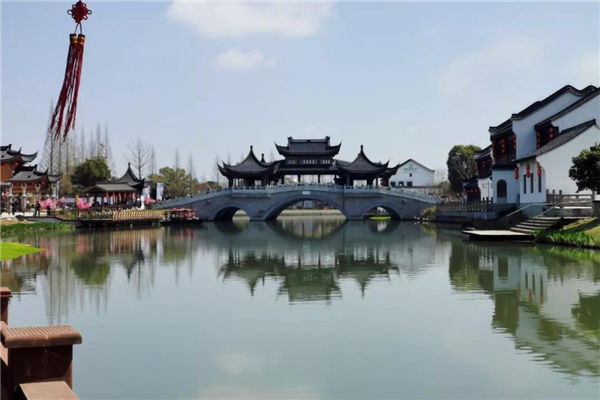Students seek stability in jobs, not flexibility

College students attend a job fair in Beijing on April 28. The event was organized by the central government to help young people secure jobs amid a competitive employment market. [Jiang Qiming / China News Service]
College students who are about to graduate are showing increasing preference for stable jobs, mostly in State-owned companies, in the post-COVID times, while authorities are keen on ensuring their employment to secure a safe job market, a survey showed.
According to the report released by recruitment portal Zhaopin, most students it surveyed have a clear and comprehensive understanding of the current economic landscape, and favor job stability in top private and State-owned companies instead of flexible jobs that are often riddled with uncertainties.
Nearly 47 percent of the respondents surveyed between March and April — considered the "golden period" for college students to seek jobs before graduation — want to be employed in State-owned companies, which is a year-on-year increase of 2.3 percentage points.
Large and medium-sized companies remain top choices, while about 26 percent of the respondents are willing to work in small and micro-sized companies, according to the report.
Undergraduates form the bulk of job seekers, but postgraduates and those with doctoral degrees are preferred by recruiters, the survey shows. As of mid-April, about 47.5 percent of the undergraduates Zhaopin surveyed had received job offers. In contrast, about 54.4 percent of vocational graduates and 56.7 percent of graduates with master's or doctoral degrees had job offers by mid-April.
Companies prefer to recruit people with higher academic degrees for white-collar positions and vocational graduates with skills for blue-collar jobs, the portal said in its report. Also, undergraduates either lack the required skill sets or have lower levels of willingness to take up technical positions in companies, which is why they tend to get less job offers, it added.
Lin Songyi, 21, a student at Shanghai University, will graduate in June with a bachelor's degree in finance, but she is yet to land a job. "I aspired to be a civil servant, given the stability of that position, but I couldn't clear the competitive examination. Now, I must find a job before I graduate," she said.
According to Lin, opportunities are scarce for college graduates during the spring recruitment period in March and April, compared with the autumn recruitment period from September to December.
"The job preferences have also changed in recent times. Most of my peers want stable jobs in government agencies or State-owned companies. Many companies, particularly internet firms, have curtailed their recruitment plans after COVID-19," she said, adding that she forwarded her resume to roughly 20 companies and appeared for four interviews, but is still waiting for some "good news".
As a key part of the country's workforce, college graduates attract continuous attention and support from both the authorities and companies.
In March, real estate broker Lianjia Beijing announced over 6,000 house agent vacancies, of which about 3,000 were open to fresh college graduates. Since March, it has been organizing both online and on-site recruitment activities at about 100 universities and colleges nationwide to offer graduates easier access to these job opportunities.
"College graduates are valuable human assets of the nation, and their employment is closely related to the nation's economic development. Their population will reach a record high this year — roughly 11.58 million," said Yu Jiadong, vice-minister of human resources and social security, at a news conference.
In April, the State Council, China's Cabinet, released a notice to further promote employment of young people, especially college graduates. The notice encourages State-owned enterprises and government agencies to expand their recruitment campaigns and offer more internships to young job seekers.

 China makes outstanding contributions to global energy transition
China makes outstanding contributions to global energy transition  Ningbo village inspires Malawi official
Ningbo village inspires Malawi official  A look at China's economic data in the first three quarters of 2024
A look at China's economic data in the first three quarters of 2024 


